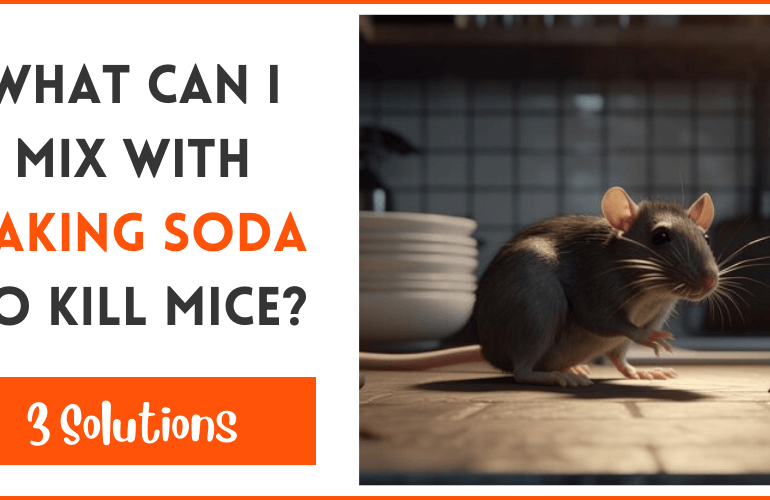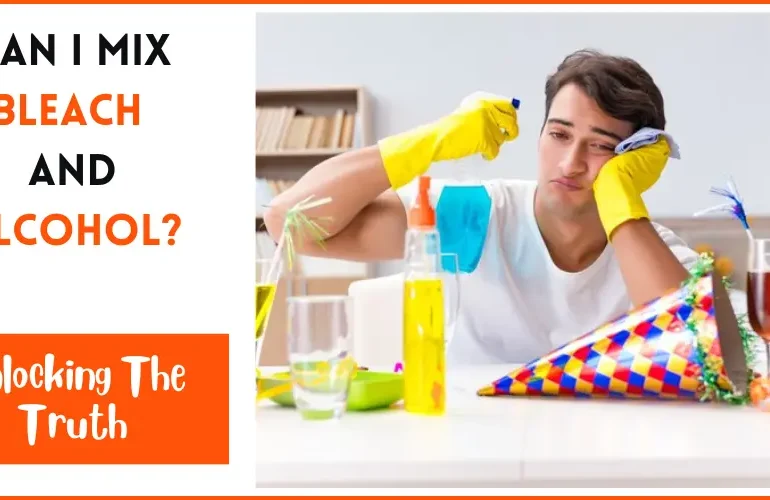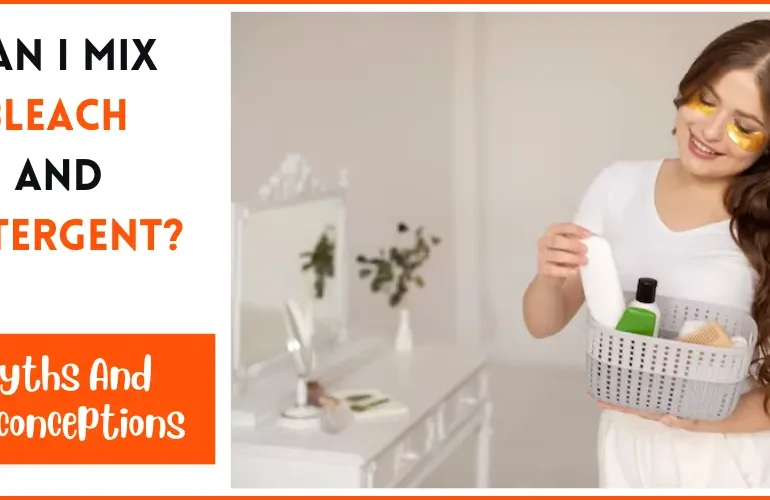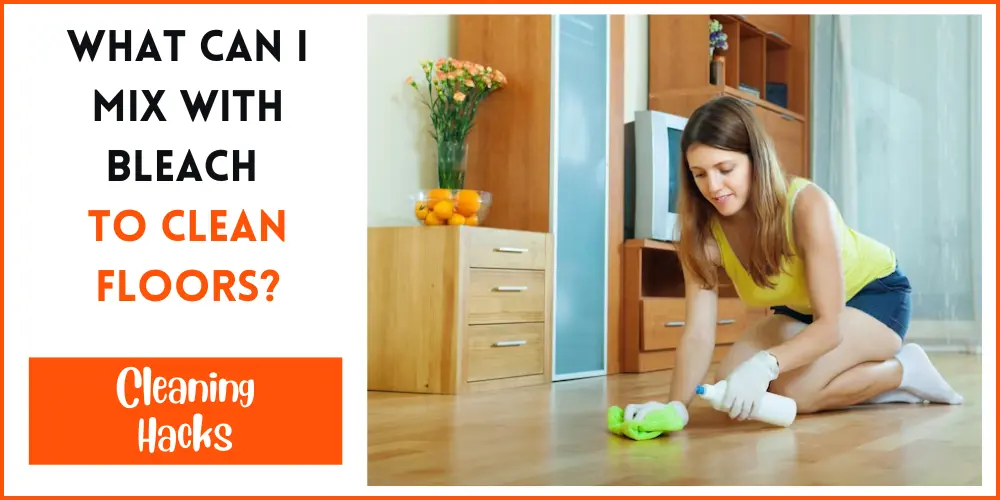
A clean and shining floor is much more than a visually pleasing aspect of your home. It’s a testament to hygiene, care, and the overall health of your living space. But how do we keep our floors spotlessly clean? One of the most common agents used for cleaning floors is bleach. But, what can I mix with bleach to clean floors? Let’s delve into this topic and understand the finer points of using bleach as a cleaning agent.
What Can I Mix With Bleach To Clean Floors?
Bleach is a potent cleaner and disinfectant, capable of eliminating a broad spectrum of microorganisms. Discover what can i mix with bleach to clean floors. However, it’s also a powerful oxidizer and can react hazardously with various other substances.
Mixing bleach with any other cleaning product can be dangerous and produce toxic fumes. To clean floors safely, use bleach on its own or follow manufacturer recommendations for compatible cleaners.
Therefore, it’s crucial to understand what you can and cannot mix with bleach. Mixing bleach with ammonia, acids, or other cleaning products can lead to the formation of toxic gases such as chloramines or chlorine gas.
Types Of Floors And Appropriate Bleach Mixtures
Different types of flooring have different compatibility levels with bleach. Here’s a quick rundown:
- Ceramic and Porcelain Tiles: These materials are generally safe to clean with a bleach solution. Combine ¾ cup of bleach with a gallon of warm water.
- Vinyl and Linoleum: Bleach won’t damage these floors. Combine a cup of bleach with a gallon of water.
- Hardwood Floors: It’s best to avoid bleach on hardwood floors as it can ruin the finish and discolor the wood.
- Natural Stone Floors: Like hardwood, natural stone can be damaged by bleach. Opt for stone-safe cleaners instead.
General Tips For Safe Bleach Use On Floors
When cleaning with bleach, safety should always be a priority. Here are a few general tips on what can I mix with bleach to clean floors:
- Always wear gloves and open windows or turn on fans for proper ventilation.
- Never mix bleach with other cleaning agents unless you’re sure it’s safe.
- Test the bleach solution on a small, hidden area first to ensure it won’t discolor or damage the floor.
Potential Risks And Precautions
While bleach is an effective cleaner, it comes with potential health risks. Contact may result in irritation to the eyes, skin, and respiratory tract.
To minimize these risks, always dilute bleach appropriately and use it in well-ventilated areas. Avoid direct skin contact and keep it out of the reach of children and pets.
Alternative Cleaning Solutions
If you’re not comfortable using bleach, there are plenty of alternatives:
- The vinegar and water mixture is a tried-and-true floor cleaner.
- Baking soda mixed with water can clean and deodorize floors.
- Commercially available floor cleaners are designed for specific floor types and are generally safe and effective.
Best Practices For Floor Cleaning With Bleach
If you’ve determined that bleach is safe for your floors, here’s a step-by-step guide:
- Clear the floor of loose dirt and debris by sweeping or vacuuming.
- Mix the bleach solution as per your floor type.
- Apply the solution to the floor using a mop. Begin from the most distant corner and proceed towards the exit.
- Let the solution sit for 5 to 10 minutes, but don’t let it dry.
- Rinse the floor thoroughly with clean water and mop it dry.
Remember, always test the solution on a hidden spot before applying it to the entire floor.
Related Guides:
How Do You Make Homemade Mop Solution With Bleach?
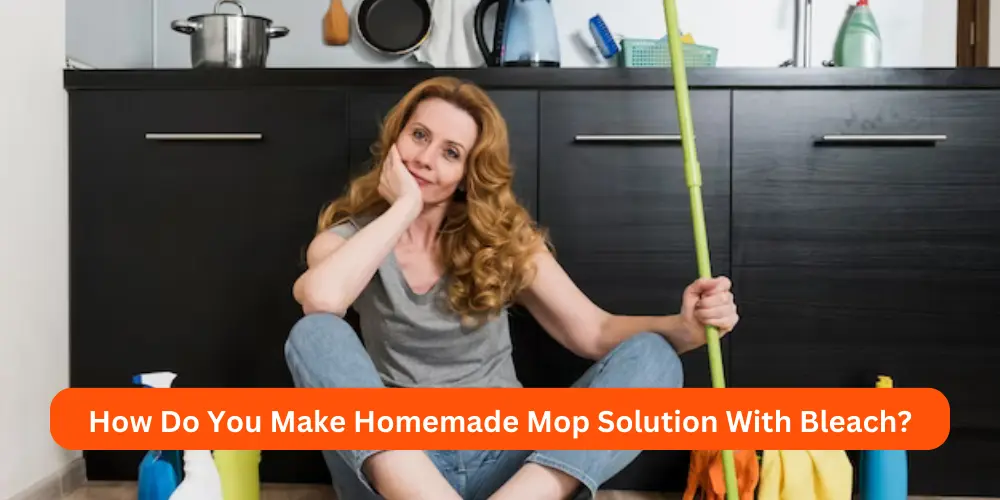
A DIY mop solution with bleach can be an economical and efficient way to keep your floors sparkling clean. Here’s a simple recipe:
- Pour a gallon of water into a spacious bucket.
- Slowly add ¾ cup of bleach to the water, mixing as you pour.
- Add a tablespoon of mild dish soap to the mixture.
- Soak your mop in the solution, wring it out, and start mopping from one corner of the room, working your way toward the exit.
Remember, it’s essential to let the floor air dry to allow the bleach solution to disinfect the surface completely.
Is It OK To Wash Floors With Bleach?
Whether it’s safe to wash floors with bleach depends primarily on the type of flooring. Bleach is safe for sealed, non-porous surfaces like tile and vinyl. However, bleach can cause discoloration and damage to porous surfaces like hardwood. Therefore, always test a small, inconspicuous area first or consult your flooring manufacturer’s guidelines.
How Do You Clean A Mop With Bleach?
Keeping your mop clean is crucial in maintaining the effectiveness of your floor cleaning routine. Here’s how to clean your mop with bleach:
- Rinse the mop to remove any loose debris.
- Fill a bucket with a gallon of warm water and add half a cup of bleach.
- Soak the mop in the bleach solution for 15 minutes.
- After soaking, rinse the mop thoroughly with clean water and let it air dry.
This routine helps keep your mop sanitary and ready for your next cleaning session.
How Do You Clean Tile Floors With Bleach?
Tile floors are particularly suited for cleaning with bleach, thanks to their non-porous nature. Use the homemade mop solution from above, ensuring you wring out the mop well to avoid over-wetting the floor. Mop the floor, allowing the bleach solution to sit on the tiles for about 5 minutes for disinfection before mopping it up.
Final Thoughts:
Maintaining clean floors is essential for a healthy living or working environment. Using bleach as a cleaning agent can be an effective way to eliminate germs and bring a fresh look to your floors. Explore what can i mix with bleach to clean floors. However, it’s crucial to remember the safety guidelines associated with its use. Ensure proper ventilation, wear protection, and never mix bleach with other cleaners. With these tips, you’re ready for a thorough, safe, and effective floor cleaning session with bleach.
Sources:
- By Mickey M. Bencetích, What kind of cleaning products can be mixed with bleach? Posted 7 Years Ago.
- Byu/Existing_Pea1850, Floor cleaner + Bleach Posted 10 Months Ago.

